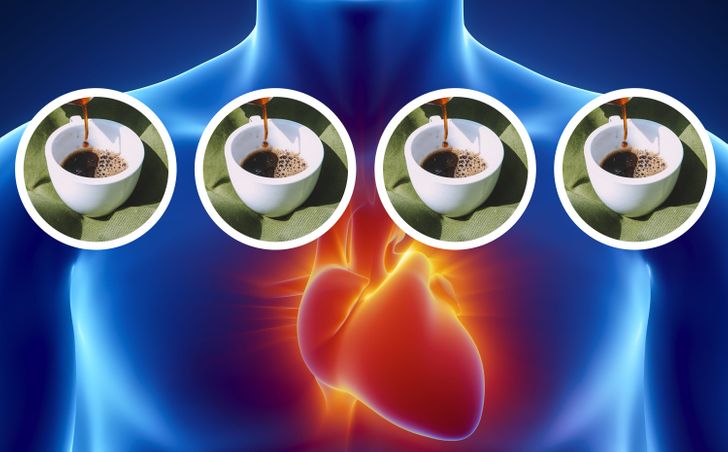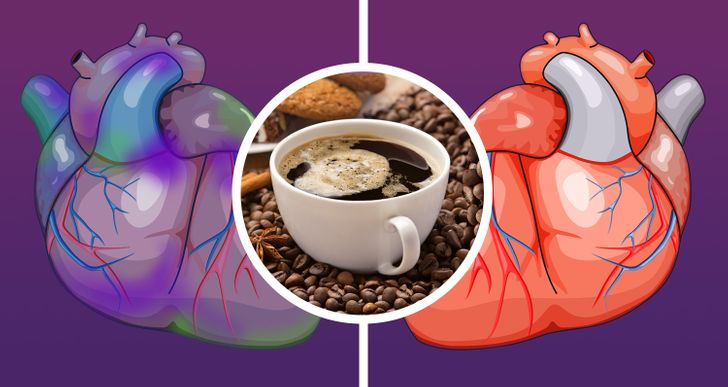offee is more than just a morning pick-me-up—it’s a global phenomenon with a rich history and a growing body of scientific research backing its health benefits. Millions of people around the world rely on coffee not only for its energizing effects but also for its potential role in improving overall health. Recent studies have shown that moderate coffee consumption can benefit heart health, enhance longevity, and even protect against certain diseases. However, like many things, the key is moderation and quality.
In this article, we explore how many cups of coffee a day truly benefit your health according to science. We’ll break down the research behind coffee’s positive effects on the heart and lifespan, discuss the importance of moderation, and explain what factors might make your coffee less healthy. Whether you’re a seasoned coffee drinker or just curious about its benefits, read on to discover the ultimate guide to optimizing your coffee habits.
For more detailed insights into coffee’s health benefits, reputable sources such as Healthline and the Mayo Clinic provide excellent resources.
Optimal Coffee Intake for a Healthy Heart: How the Right Amount of Coffee Improves Cardiovascular Health

One of the most exciting areas of coffee research is its impact on heart health. Moderate coffee consumption has been linked to a lower risk of cardiovascular diseases, thanks largely to its high antioxidant content and its ability to improve blood vessel function.
How Coffee Benefits Your Heart:
- Rich in Antioxidants: Coffee contains powerful antioxidants such as chlorogenic acid and polyphenols. These compounds help fight oxidative stress and inflammation, both of which are risk factors for heart disease.
- Improves Vascular Function: Studies suggest that moderate coffee consumption can enhance endothelial function, meaning your blood vessels can dilate more effectively, improving circulation and reducing blood pressure.
- Lowers Risk of Heart Disease: Research published in journals like the Journal of the American College of Cardiology has indicated that individuals who consume about 3 to 4 cups of coffee per day experience a significant reduction in the risk of heart failure and coronary heart disease.
Incorporating around 3 to 4 cups of quality, freshly brewed coffee into your daily routine might be just what your heart needs to stay in top shape. It’s important, however, to avoid over-sweetened or high-calorie coffee drinks, as these can negate the benefits. For further reading on coffee and heart health, check out Harvard Health Publishing.
Longevity and Coffee Consumption: Why Coffee Drinkers May Live Longer

Beyond heart health, numerous studies have linked moderate coffee consumption to increased longevity. This fascinating correlation has been observed in various population studies and suggests that coffee drinkers might have a lower risk of premature death compared to non-drinkers.
The Longevity Link:
- Reduced Risk of Chronic Diseases: Moderate coffee intake has been associated with a decreased risk of developing chronic diseases such as type 2 diabetes, Parkinson’s disease, and certain types of cancer. These conditions are major contributors to mortality, so reducing their incidence can significantly impact lifespan.
- Anti-Inflammatory Effects: The bioactive compounds in coffee help combat chronic inflammation—a known factor in aging and many age-related diseases.
- Enhanced Cognitive Function: Regular coffee consumption has been linked to improved brain function and a lower risk of cognitive decline, potentially delaying the onset of diseases like Alzheimer’s.
A large study published in The New England Journal of Medicine found that coffee drinkers had a lower risk of death from various causes compared to non-drinkers, particularly when consuming between 3 and 5 cups per day. For more insights into the relationship between coffee and longevity, visit WebMD’s coffee health benefits section.
Moderation is Key: Avoiding the Risks of Excessive Coffee Consumption

While moderate coffee consumption offers a host of benefits, overdoing it can lead to adverse health effects. It’s important to know that more isn’t always better when it comes to coffee.
Risks of Overconsumption:
- Increased Anxiety and Insomnia: Too much caffeine can lead to heightened anxiety, jitteriness, and sleep disturbances. This is especially problematic for individuals sensitive to caffeine.
- Digestive Issues: Excessive coffee can irritate the stomach lining, potentially leading to acid reflux or other digestive discomforts.
- Elevated Heart Rate: Overconsumption might lead to a rapid heart rate or palpitations in some individuals, particularly those with preexisting heart conditions.
Experts generally recommend keeping your caffeine intake to a maximum of around 400 milligrams per day—roughly equivalent to 4 cups of brewed coffee. Keeping within this limit can help you enjoy the benefits without experiencing the negative side effects. For detailed guidelines on caffeine consumption, check out Mayo Clinic’s recommendations.
Unhealthy Coffee Habits: What Makes Your Coffee Unhealthy and How to Improve It

Not all coffee is created equal. The way you prepare and consume your coffee can significantly impact its health benefits. Unhealthy coffee habits can turn a beneficial beverage into a potential health hazard.
Common Pitfalls in Coffee Consumption:
- Excessive Sugar and Cream: Adding large amounts of sugar, cream, or flavored syrups can transform your healthy cup of coffee into a high-calorie, high-sugar treat. This not only increases the risk of weight gain but also raises blood sugar levels.
- Low-Quality Coffee Beans: The quality of the coffee bean plays a crucial role in determining its nutritional value. Chemically processed or low-grade beans may contain harmful additives and lack the beneficial antioxidants found in high-quality, organic coffee.
- Over-Reliance on Instant Coffee: Instant coffee often contains added sugars and preservatives. While it’s convenient, it may not provide the same health benefits as freshly ground, high-quality coffee.
Tips for a Healthier Coffee Routine:
- Opt for Organic and Fair-Trade Coffee: Choose high-quality beans that are organic and ethically sourced to ensure you’re getting the best nutrients without harmful chemicals.
- Limit Added Sugars: Experiment with natural sweeteners like stevia or simply enjoy your coffee black to reap its full benefits.
- Be Mindful of Portion Sizes: Stick to moderate serving sizes and avoid consuming multiple large cups in a short period.
For more detailed advice on healthy coffee habits, resources like Healthline’s guide to coffee and Harvard T.H. Chan School of Public Health offer excellent insights.
How Many Cups of Coffee a Day Benefit Your Health?
So, what does the science really say about the optimal number of cups per day? Research indicates that the sweet spot for most adults is between 3 to 4 cups of coffee per day. This range appears to offer the best balance between maximizing health benefits and minimizing potential risks.
Scientific Consensus:
- Moderate Consumption is Key: Most studies agree that moderate coffee consumption—around 3 to 4 cups per day—is associated with reduced risks of heart disease, certain cancers, type 2 diabetes, and neurological disorders.
- Individual Variation Matters: It’s important to note that optimal intake may vary based on individual factors such as age, weight, genetics, and overall health. What works for one person might not work for another, so it’s essential to pay attention to your body’s signals.
- Quality Over Quantity: The benefits of coffee are most pronounced when it is consumed in its purest form. High-quality, freshly brewed coffee is more likely to provide the full spectrum of antioxidants and beneficial compounds.
While some individuals may thrive on slightly more or less coffee, staying within the 3 to 4 cup range is generally considered a healthy target for most people. If you’re sensitive to caffeine or have specific health concerns, it’s always a good idea to consult with a healthcare provider.
Additional Health Benefits of Coffee You Should Know
Beyond heart health and longevity, coffee offers a variety of other potential health benefits. Understanding these can help you optimize your coffee consumption to support your overall well-being.
Cognitive Function and Mental Health:
- Enhanced Focus and Alertness: Caffeine, the primary active ingredient in coffee, is a well-known stimulant that can help improve concentration, alertness, and overall cognitive function.
- Reduced Risk of Neurodegenerative Diseases: Some studies have found that regular, moderate coffee consumption may lower the risk of Alzheimer’s disease and Parkinson’s disease.
Metabolic Boost and Weight Management:
- Increased Metabolism: Caffeine can boost your metabolic rate, helping your body burn calories more efficiently. This makes coffee a popular beverage among those looking to manage their weight naturally.
- Improved Physical Performance: Many athletes consume coffee before workouts to enhance performance and endurance, thanks to its ability to mobilize fatty acids from fat tissues.
For further reading on these additional benefits, visit WebMD’s coffee health benefits page or explore more research at Healthline.
Conclusion: Optimize Your Coffee Habit for Maximum Health Benefits
Coffee is undoubtedly one of the most popular beverages in the world, and its health benefits are backed by a wealth of scientific research. By consuming a moderate amount—typically around 3 to 4 cups a day—you can enjoy numerous advantages, including improved heart health, increased longevity, enhanced cognitive function, and a boost in metabolic rate.
However, as with any dietary habit, the benefits depend largely on how you prepare and consume your coffee. Prioritizing high-quality, organic beans, limiting added sugars and unhealthy additives, and paying attention to your body’s response are essential steps in maximizing coffee’s positive effects. Remember, moderation is key, and while coffee can be a powerful ally in your quest for better health, overconsumption may lead to adverse effects such as anxiety, digestive issues, or sleep disturbances.
By integrating these insights into your daily routine, you can make informed decisions about your coffee consumption that align with both your health goals and your lifestyle. Embrace the benefits of moderate coffee intake, and enjoy not only the rich flavors and energizing boost it provides but also the science-backed improvements in your overall well-being.
For more expert advice and detailed research on coffee and health, explore trusted sources such as Mayo Clinic, Harvard Health Publishing, and WebMD. These resources offer valuable insights into how you can optimize your coffee habits for a healthier, more energetic life.
Disclaimer: The information provided in this article is for educational purposes only and should not replace professional medical advice. Always consult with a healthcare professional before making significant changes to your diet or caffeine consumption.









Leave a Reply